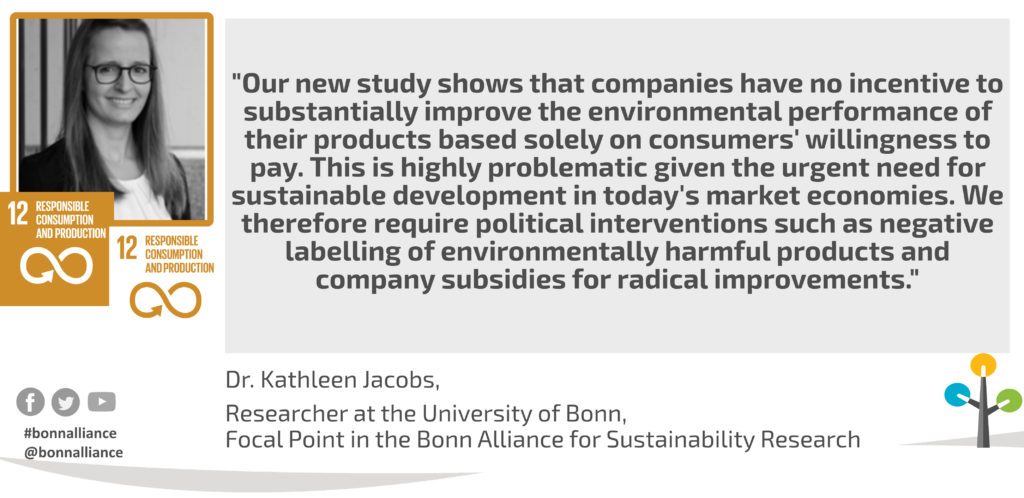The effects of favorable and unfavorable environmental information on consumers’ willingness to pay
Lars Petersen (Alanus Hochschule), Jacob Hörisch (Leuphana Universität Lüneburg), Kathleen Jacobs (Rheinische Friedrich-Wilhelms-Universität Bonn, Bonner Allianz für Nachhaltigkeitsforschung)
Erstmals erschienen: 30. Mai 2021 https://doi.org/10.1111/jiec.13141, Journal of Industrial Ecology
Leitender Redakteur: Frank Boons

Zusammenfassung [Englisch]:
Increasing consumers’ willingness to pay (WTP) for environmentally friendly products is a key challenge for sustainable development in market economies. Still, how consumers react to favorable and unfavorable environmental information of different quantitative extents is largely unknown. This research therefore uses prospect theory and competing theoretical foundations to derive pertinent hypotheses and test them by using a multi-level structural equation model. The analysis draws on a survey-based experiment conducted among a representative sample of the German population. Results confirm key assertions of prospect theory. The negative effect caused by unfavorable product carbon footprint information on WTP is stronger than the positive effect caused by respective favorable information. Besides this negativity bias, consumers tend to generally reward or punish deviations of a product’s environmental performance from industry average instead of consistently accounting for the size of these deviations. From a sustainable development perspective, the observed patterns highlight a problematic contrast between the need for substantial environmental improvements and limited market incentives for companies. Consequently, political intervention is needed to introduce negative labeling, raise consumers’ reference points, set minimum industry standards, and subsidize companies for radical improvements.
Lesen Sie den gesamten Artikel hier. [Englisch]